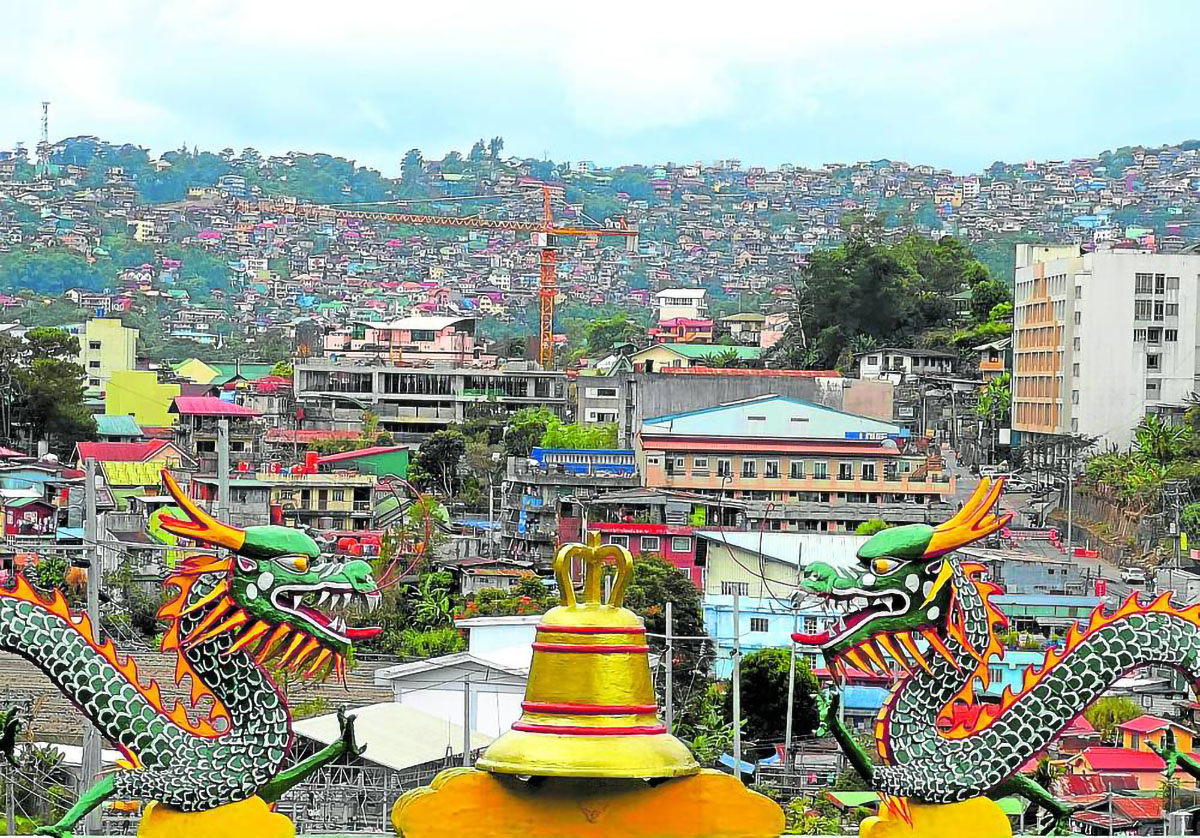Senate starts review of Baguio charter

CROWDING Baguio City, the country’s summer capital, has been dealing with problems associated with urbanization like crowding, dwindling water supply and diminishing forests and land. A new city Charter replacing the 1909 Charter crafted by the Americans hopes to address these problems. —EV Espiritu
BAGUIO CITY, Philippines — The Senate on Tuesday began correcting flaws in the modern Baguio City Charter (Republic Act No. 11689), which had upset sectors here for technically downgrading the city’s status as an independent, highly urbanized local government and for granting another agency power in the titling of city properties.
The upper chamber is reviewing House Bill No. 7406 that was recently passed by the Lower House to amend erroneous passages of RA 11689 which lapsed into law on April 11, 2022, and replaced Baguio’s original 1909 Charter (Republic Act No. 1963).
The first charter was penned by Supreme Court Justice George Malcolm when he codified statutes issued in the 1900s by the American colonial government when he served as a law clerk.
READ: Baguio wants ‘gross errors’ in new city charter fixed
HB 7406 removes a section of RA 11689 which requires lawyer Brenner Bengwayan, the secretary to the city council, to transmit all actions taken by the council to the Benguet provincial board for review and approval.
Article continues after this advertisementSection 23, Paragraph C, No. 4 of the revised Charter says one of the tasks of the city council secretary was to “forward to the Sangguniang Panlalawigan (provincial board) copies of duly approved ordinances in the manner provided in Sections 56 and 57 of the Local Government Code of 1991, as amended.” By law, this provision downgraded Baguio to a component city of Benguet, the city council says.
Article continues after this advertisementAt the Tuesday public hearing organized by the Senate committees on local government, on public works, on finance, and on electoral reforms and people’s participation, Vice Mayor Faustino Olowan criticized lawmakers who introduced this provision for their “carelessness.”
The revised Charter had been opposed by the majority of the city council since March 2022 when nine of its members asked then President Rodrigo Duterte to veto the law because of its mistakes.
Cut, paste
Baguio Rep. Marquez Go, coauthor of HB 7406 and the sponsor of the revised Charter, testified at the hearing that this provision was not in the original bill he filed and was “inadvertently and erroneously inserted by the House committee on local government during the preparation of its substitute bill.” Sen. JV Ejercito, who chairs the Senate’s local government committee, said he would study these errors which had been attributed by some officials to “cutting and pasting” paragraphs of the Local Government Code (Republic Act No. 7160).
Citing Baguio’s position paper, Olowan also urged lawmakers to remove a provision separating the Camp John Hay reservation from the Baguio townsite as spelled out in Section 55 of the revised Charter.
The law states: “The Camp John Hay Reservation covering a total land area of 6,254,105 square meters (625 hectares) subject to final survey, which was transferred to the BCDA (Bases Conversion and Development Authority) by virtue of Republic Act No. 7227, as amended, otherwise known as the ‘Bases Conversion and Development Act of 1992,’ as amended, is not part of the Baguio Townsite Reservation.” The townsite refers to Baguio lands that are alienable and disposable.
Section 55 was both “superfluous and an oddity” for a city Charter, Olowan said, adding there may have been an “implied advantage” given Camp John Hay’s custodian, BCDA, when the Charter excluded only the former John Hay Air Station which has commercial value being a tourism destination and a special economic zone.
Territorial boundaries
He said the revised Charter did not mention other civil and military reservations that exist in Baguio, such as the Dairy Farm administered by the Department of Agriculture, or military camps governed by the Philippine Military Academy just outside the townsite.
He said referencing only Camp John Hay in the Charter could have been a way of legitimizing by law the former John Air Station’s expansion from 570 ha as stipulated by the BCDA law (RA 7227) to 650 ha. By contrast, Section 3 of RA 11689 does not set the territorial boundaries of Baguio.
The revised Charter also makes BCDA’s affiliate company a ranking member of a Special Committee on Lands. HB 7406 modifies this provision of the law by including BCDA’s estate manager, John Hay Management Corp. (JHMC), in the land’s committee only for matters related to Camp John Hay. But it elevates JHMC to the rank of vice chair in the committee, which the city council opposed.
But the council indicated it was “appreciative” of another HB 7406 amendment that restores Baguio’s entitlement to proceeds from the sale of townsite lands, which was enshrined in the 1909 document and removed by RA 11689.
Councilor Arthur Allad-iw also asked Ejercito to hold a public consultation in Baguio regarding a second Charter revision because it would impact on all of its residents. —Vincent Cabreza